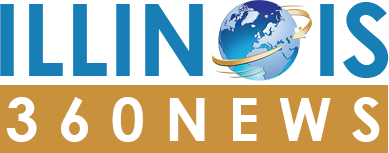Disinformation Age: Media's Impact on Politics
In today's interconnected world, where information spreads rapidly, the media plays a crucial role in shaping public opinion and influencing political landscapes. The prevalence of disinformation in the digital age has raised concerns about the impact of media on politics. This article explores the intricate relationship between media and politics, delving into the ways disinformation can shape public perception, the consequences it has on democratic processes, and the steps individuals can take to combat its influence.
The Power of Media: Shaping Public Perception
The media has long been recognized as a powerful tool for shaping public perception. It provides information, frames issues, and influences public opinion on various matters, including politics. Through news reporting, analysis, and commentary, the media shapes the narrative around political events and policies, ultimately influencing how people perceive them.
The Rise of Disinformation in the Digital Age
In the digital age, the proliferation of social media platforms and the ease of sharing information have given rise to the spread of disinformation. Disinformation refers to false or misleading information intentionally spread to deceive or manipulate people. It can take the form of fabricated stories, manipulated images or videos, and misleading headlines. The rapid dissemination of disinformation poses significant challenges to the accuracy and integrity of political discourse. In the digital age, the rise of disinformation has become a significant challenge that society faces. Disinformation refers to false or misleading information that is spread with the intent to deceive or manipulate people. The widespread availability of the internet and social media platforms has amplified the speed and reach of disinformation, making it a pressing concern for individuals, communities, and governments worldwide.
One of the primary reasons for the proliferation of disinformation is the ease with which information can be created, shared, and consumed on digital platforms. Anyone with an internet connection can publish content, regardless of its accuracy or credibility. This has led to a situation where misinformation and falsehoods can quickly gain traction and reach a wide audience before corrective measures can be taken.
Social media platforms play a crucial role in the dissemination of disinformation. Algorithms designed to maximize user engagement often prioritize sensational or controversial content, regardless of its veracity. This creates an environment where misleading information and conspiracy theories can flourish, as they tend to generate more clicks, likes, and shares. Additionally, the anonymity provided by online platforms allows individuals and groups to spread disinformation without facing immediate consequences, further fueling its spread.
Disinformation campaigns are often driven by various actors, including state-sponsored entities, political organizations, and malicious individuals. Their motivations can range from influencing public opinion and elections to sowing discord and undermining trust in institutions. These campaigns leverage sophisticated techniques, such as deepfakes, bot networks, and coordinated misinformation campaigns, to make their content appear legitimate and credible.
The consequences of the rise of disinformation are far-reaching. It erodes public trust in traditional sources of information, undermines democratic processes, and exacerbates societal divisions. Disinformation can also have real-world implications, such as when false health information leads to harmful behaviors or when manipulated images or videos incite violence.
Addressing the challenge of disinformation requires a multi-faceted approach. Technological solutions, such as improved algorithms, fact-checking tools, and user education, can help curb the spread of false information. Collaboration between tech companies, governments, and civil society organizations is essential to develop and implement effective strategies.
Media literacy programs can equip individuals with critical thinking skills to evaluate information sources and identify disinformation. Promoting digital literacy from an early age can help individuals become discerning consumers of online content.
Regulatory measures may also be necessary to hold platforms accountable for the content they host. Policies that promote transparency, authenticity, and responsible content moderation can help mitigate the impact of disinformation. However, care must be taken to balance the need to address disinformation without infringing on freedom of speech and expression.
Ultimately, combating the rise of disinformation requires collective efforts from individuals, technology companies, policymakers, and civil society. By promoting media literacy, fostering responsible digital platforms, and encouraging a culture of critical thinking, we can work towards mitigating the harmful effects of disinformation and creating a more informed and resilient society in the digital age.
Politics and Media: A Complex Interplay
Media Bias and Partisanship
Media bias and partisanship have become prevalent issues in the modern media landscape. Biased reporting and editorial stances can influence the way political events are portrayed, potentially skewing public perception. Media outlets with clear partisan leanings can contribute to polarization and create echo chambers that reinforce pre-existing beliefs rather than fostering open dialogue.
Social Media Echo Chambers
Social media platforms have revolutionized the way people consume news and engage with political content. However, these platforms can also inadvertently create echo chambers, where individuals are exposed only to content that aligns with their existing beliefs. This can reinforce ideological biases, limit exposure to diverse perspectives, and contribute to the spread of disinformation.
Fake News and Misinformation
The rise of fake news and misinformation presents a significant challenge to the integrity of political discourse. False or misleading information can be intentionally created and circulated, leading to widespread confusion and misinterpretation. The viral nature of such content on social media platforms can amplify its reach and impact.
Consequences of Disinformation on Politics
Erosion of Trust in Institutions
The proliferation of disinformation erodes trust in institutions, including political systems and the media itself. When false information is presented as factual, it undermines the credibility of reliable sources and fosters skepticism among the public. The erosion of trust in institutions can have profound implications for democratic processes and governance.
Polarization and Divisiveness
Disinformation contributes to political polarization and societal divisions. False narratives and misleading information can reinforce existing biases, fueling hostility and animosity between different political factions. This polarization makes it increasingly difficult to find common ground, engage in constructive dialogue, and seek collaborative solutions to societal challenges.
Threats to Democratic Processes
The impact of disinformation extends beyond individual beliefs and behaviors. It poses significant threats to democratic processes, including elections. Manipulative tactics such as spreading false information about candidates or creating fictional narratives can sway public opinion and influence election outcomes. The manipulation of information undermines the integrity of democratic systems, compromising their fairness and legitimacy.
Combatting Disinformation: Individual Responsibility
Media Literacy and Critical Thinking
Developing media literacy and critical thinking skills is crucial in the fight against disinformation. Individuals must learn to evaluate the credibility of sources, recognize biased reporting, and fact-check information before accepting it as true. By cultivating a healthy skepticism and actively seeking reliable information, individuals can mitigate the influence of disinformation on their political views.
Fact-Checking and Verification
Fact-checking plays a vital role in combating disinformation. Independent fact-checkers and reputable news organizations dedicate resources to verify the accuracy of claims and statements made by politicians and public figures. Engaging in fact-checking helps to uncover falsehoods and holds those responsible for spreading disinformation accountable.
Diversifying News Sources
Relying on a single news source increases the risk of being exposed to biased or misleading information. Diversifying news sources helps to gain different perspectives and enables a more comprehensive understanding of complex political issues. By seeking out reputable sources with diverse viewpoints, individuals can avoid falling victim to echo chambers and disinformation campaigns.
The Role of Government and Regulation
The government has a role to play in addressing the spread of disinformation. Implementing regulations that promote transparency, accountability, and fact-based reporting can help mitigate the impact of disinformation on politics. Encouraging media literacy education in schools and fostering collaboration between government institutions, tech companies, and civil society organizations can also contribute to combating disinformation effectively.







 English (US) ·
English (US) ·